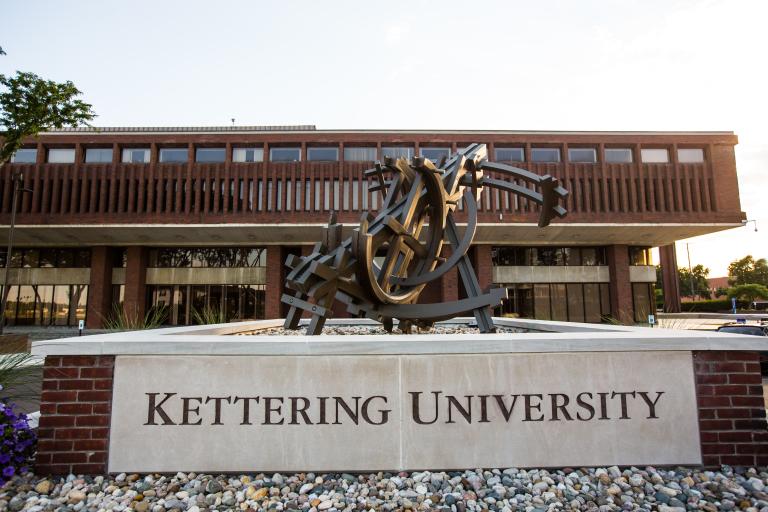
Kettering University’s Honors Program aims to give students closer connections, creative control over their learning, and more research opportunities as underclassmen.
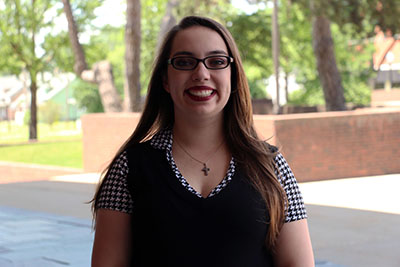
Kettering’s Honors Program is in its third year with a growing number of students joining each year. The program combines an adaptive curriculum with substantive research opportunities.
“I think Kettering’s Honors Program gives students a bit more control over what they are learning. They can choose to learn more in those areas that they are particularly drawn to by choosing to do their honors project in that course. The program also gets them connected to faculty earlier and it causes them to more likely approach faculty sooner and ask questions sooner,” said Denise Stodola, Honors Program Coordinator. “It integrates them more quickly. It puts students in a creative position around their learning process.”
Honors students participate in two honors projects each term, choosing the two courses and faculty they will partner with to extend their learning. There are also honors sections for select core courses. On top of those benefits, additional annually-renewable $3,000 scholarships are awarded exclusively to Honors Program students.
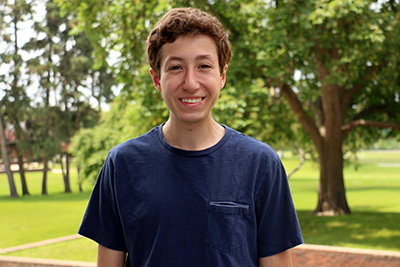
Being a part of Kettering’s Honors Program helps students connect and collaborate with other students who are as driven as themselves, said Olivia Wanless '20. It also allows students to form their education around what they are most interested in, she said.
"Being in the Honors Program helped to really open up an extra line of communication with professors because you work outside of class with projects. You learn things more thoroughly. If you find something you're more interested in that you don't go really in depth in in class you can really dive into that in the honors projects," said Wanless, an Electrical Engineering major.
Honors students regularly meet up, learn from each other, and collaborate throughout their time on campus as a way to motivate each other and have a sense of unity, Stodola said.
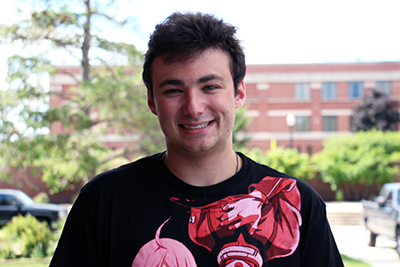
Pietro Pellerito ‘22 came to Kettering because he wanted a smaller school family atmosphere on top of the co-op experience. The Honors Program was an extra incentive to ensure his success in college, he said.
“There’s a lot of people at big state schools. Resources are spread thin especially when meeting with professors and it’s hard to find time to meet with a professor. At Kettering I have never had a problem meeting with a professor,” said Pellerito, a Math major focusing on Actuarial Science. “In the Honors Program you get to talk with the professors and get more insight in whatever subject you are studying. Establishing a relationship with these professors, that's the best benefit.”
Without extra time with professors, Pellerito said he would have never taken a scientific 3D printing course, which ended up being his favorite class he has taken so far during his college experience.
One of Jack Moylan ‘21’s favorite honors projects was for his dynamics class where he calculated the top speed that a driver could take a Camaro around a specific highway exit.
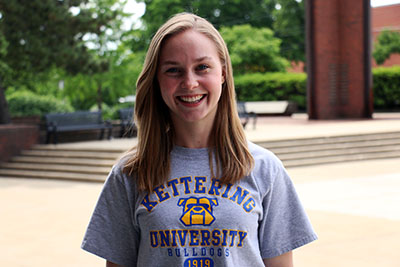
“I’ve always been an honors student. Every college I applied to I applied to the honors program. The challenge is there. It’s good for your resume and learning further,” said Moylan, a Mechanical Engineering major at Kettering. “If nothing else it helps you think a little more about what you’re doing and how you would apply this to your co-op. You can do a much more personal project if there isn’t one already in the course. You can apply it yourself and learn how you will use it in real life.”
The close-knit campus feeling is one of Emma Rudziensky '21’s favorite thing about Kettering. Being in the Honors Program also gives her the opportunity to have closer relationships with faculty and form mentorships.
"I originally wanted to be a part of the Honors Program because I wanted a way to differentiate myself. I thought that would be a good way to separate myself and go above and beyond," said Rudziensky, a Mechanical Engineering major. "The program helped me network and find research that I'm really interested in and opened doors I wouldn't have had otherwise."